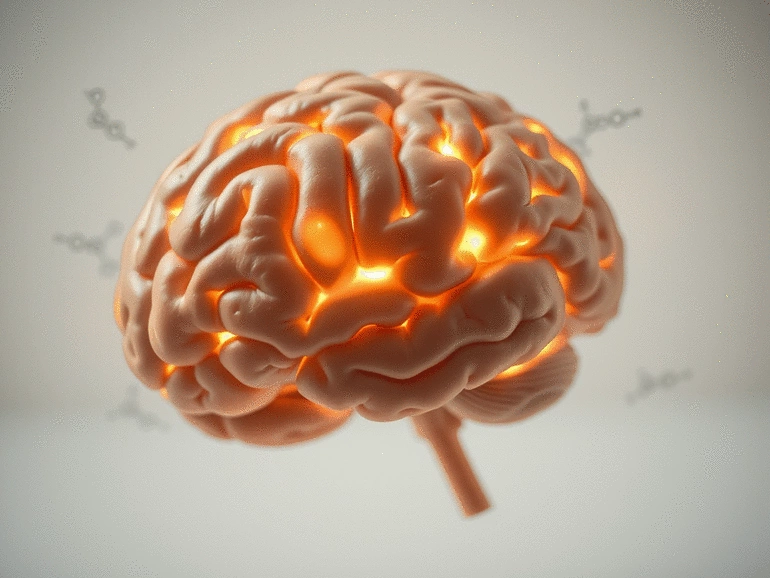
What if you could unlock the secrets of your brain's response to stress? Understanding these dynamics is critical for effective mental health management and can empower you to reclaim control over your emotional well-being.
This visual differentiates between acute and chronic stress, highlighting their distinct effects on brain function and overall well-being. It illustrates how the body's response varies based on the duration and intensity of the stressor.
Acute stress is the body's immediate reaction to a new and sudden challenge. Often beneficial, it enhances focus and performance temporarily.
Chronic stress results from prolonged exposure to stressors, leading to severe mental and physical health issues.
Stress doesn’t just affect your mood—it also has a profound impact on your brain function. When we encounter stress, our bodies enter a state of heightened alertness, which triggers a well-coordinated response involving several systems, particularly the hypothalamic-pituitary-adrenal (HPA) axis. This axis is crucial for regulating our stress responses and maintaining balance within our systems.
When the brain perceives a stressor, it activates the HPA axis, leading to the release of hormones that prepare the body for action. Understanding how this process works can help us recognize the physiological changes that occur during stressful moments. For more detailed information on how stress impacts brain development and mental health, you can refer to this OHSU research.
Under stress, the body’s immediate response is to release hormones, including adrenaline and cortisol, which prepare you for a fight or flight situation. This cascade begins in the brain, particularly in the amygdala, which processes emotional responses. The interaction between various brain regions orchestrates how we react to stress, and it can lead to significant changes in both behavior and cognition.
This understanding is important, as recognizing these changes can empower us to take proactive steps in managing stress. At Stress Insight Solutions, we emphasize the importance of awareness in navigating your emotional landscape!

Cortisol, often referred to as the "stress hormone," plays a key role in various bodily functions, including metabolism and immune response. However, its primary function during stress is to prepare the body for rapid action. Elevated levels of cortisol can affect brain chemistry by altering neural pathways and influencing how we process information.
High cortisol levels can lead to cognitive impairments, such as difficulties in memory and learning. It's fascinating—and a bit concerning—that while cortisol is vital for our survival, chronic exposure can harm our mental health. Research published in Nature Communications delves deeper into the complex relationship between stress, hormones, and brain health.
The hypothalamus and pituitary gland work together to regulate the body’s response to stress. When stress is detected, the hypothalamus releases corticotropin-releasing hormone (CRH), which signals the pituitary gland to release adrenocorticotropic hormone (ACTH). This, in turn, stimulates the adrenal glands to produce cortisol.
This intricate network highlights the importance of these glands in managing stress. By understanding their roles, we can better appreciate how stress impacts our overall health and well-being.
Not all stress is created equal! Recognizing the difference between acute and chronic stress is crucial for effective management.
Acute stress can actually be beneficial! It enhances performance and prepares the body for immediate challenges. However, while it can boost focus and energy in the short term, it's important to ensure it doesn't lead to negative consequences.
Understanding this can help us manage situations where stress is unavoidable, allowing us to harness its potential while minimizing its negative effects. Let’s explore how acute stress compares to chronic stress!
Chronic stress, on the other hand, can lead to serious mental health issues, including anxiety and depression. Prolonged exposure to stress hormones can wear down the body and mind, leaving you feeling exhausted and overwhelmed. The concept of toxic stress, as described by Harvard University, emphasizes the severe and lasting impact of sustained stressors on physical and mental health.
Awareness of these consequences is essential. At Stress Insight Solutions, we advocate for recognizing when stress becomes detrimental, so individuals can take proactive steps for their mental health.
The fight or flight response is a fascinating physiological change that occurs with acute stress. When faced with a threat, your body prepares to either confront the danger or flee from it, activating numerous systems.
This response can be life-saving in certain situations. However, understanding its role can also help us develop coping strategies for managing stress effectively!
To effectively manage stress, consider incorporating mindfulness techniques into your daily routine. Simple practices such as deep breathing exercises, meditation, or even short walks in nature can significantly reduce stress levels and enhance your overall mental well-being. Remember, it's not about eliminating stress but learning to navigate it with resilience!
Understanding how stress affects our brain is critical to managing its impacts effectively. Stress triggers a complex response involving neurochemicals like cortisol, which plays a significant role in brain function. This recap will help clarify how these elements interplay to influence our mental and emotional well-being.
As we navigate our daily lives, recognizing the effects of stress on brain function can empower us to make informed decisions regarding our mental health.

If you find yourself grappling with symptoms of chronic stress, such as anxiety or mood swings, I wholeheartedly encourage you to seek professional help. At Stress Insight Solutions, we believe in the importance of community support and professional guidance to foster resilience. Connecting with a mental health professional can provide you with tailored strategies that address your unique stressors.
Remember, reaching out is a sign of strength, and it's a step towards reclaiming your peace of mind.
In our fast-paced world, stress can sometimes feel overwhelming. However, it's crucial to incorporate effective stress management techniques into your routine. Simple practices, such as regular exercise, mindfulness, and proper sleep, can significantly enhance your well-being.
By implementing these strategies and being proactive about your mental health, you can navigate stress more effectively, fostering a healthier mindset and building lasting resilience.
Here is a quick recap of the important points discussed in the article:
We illuminate the causes and effects of stress through science-informed resources, empowering you to recognize stressors and implement effective coping strategies. Your mental well-being is our priority.
